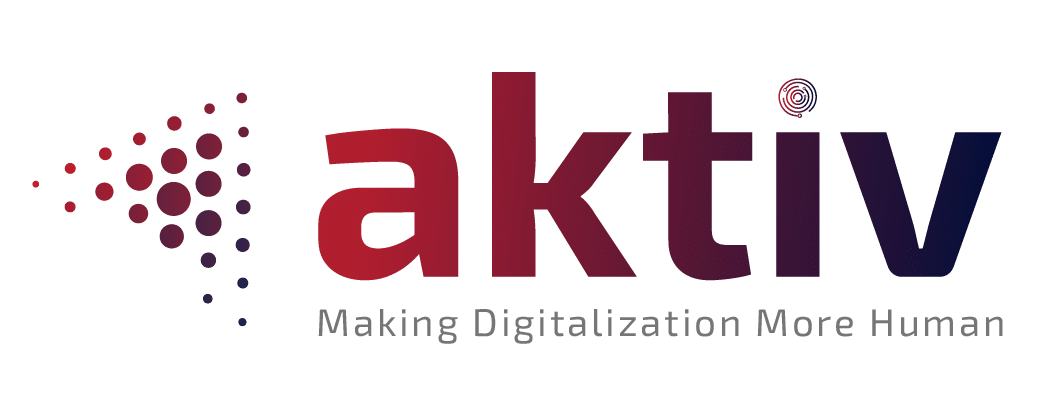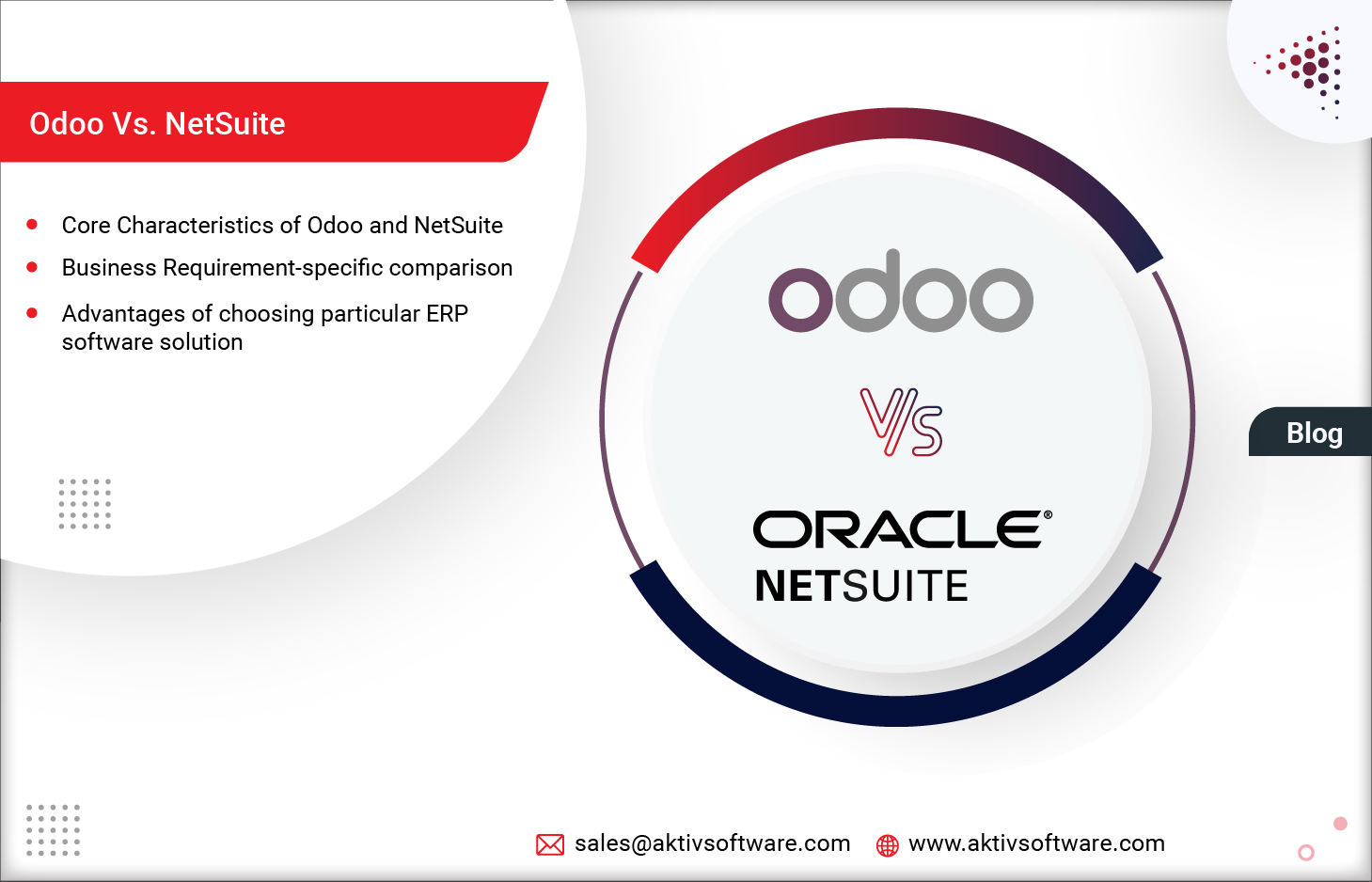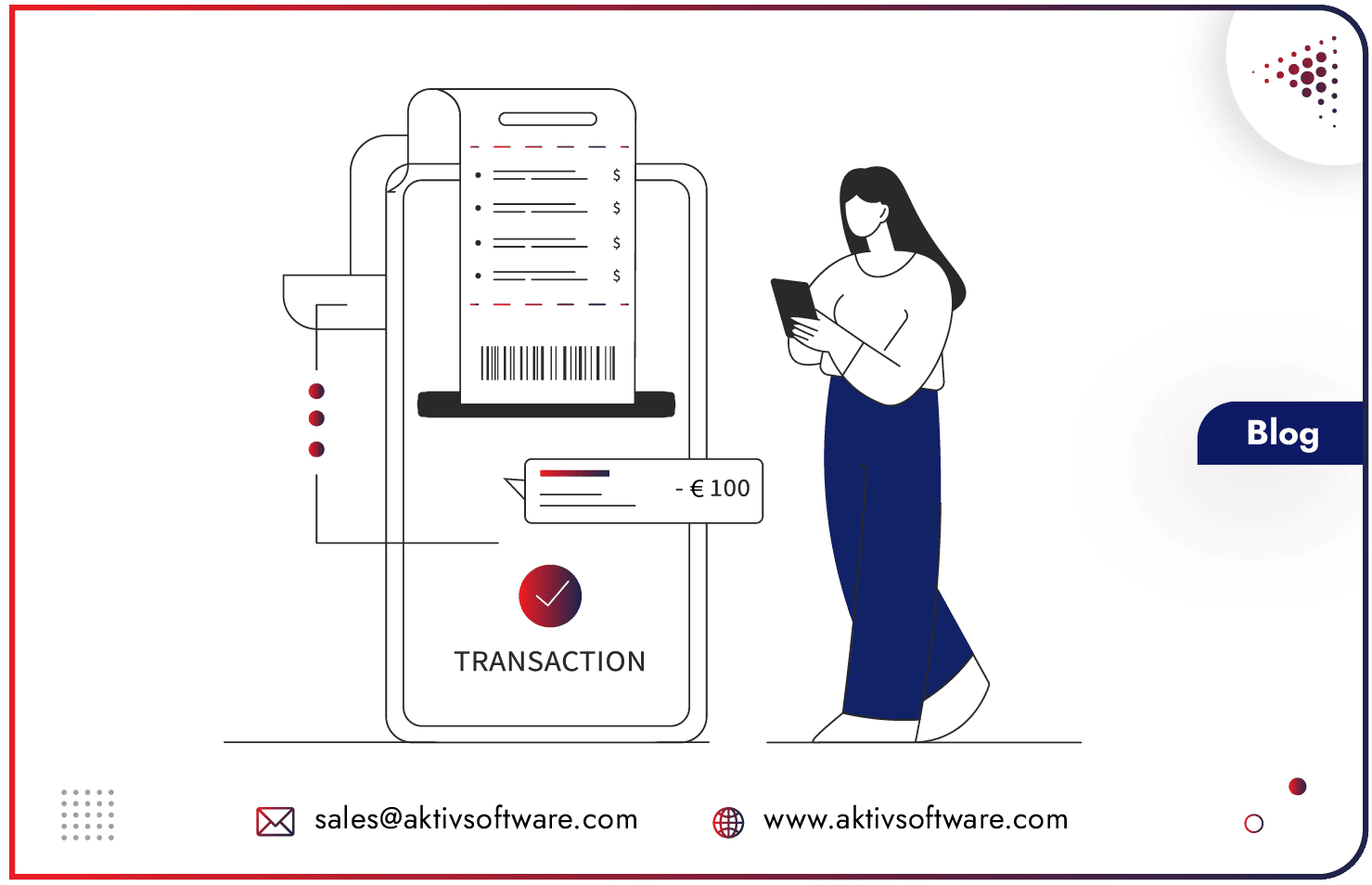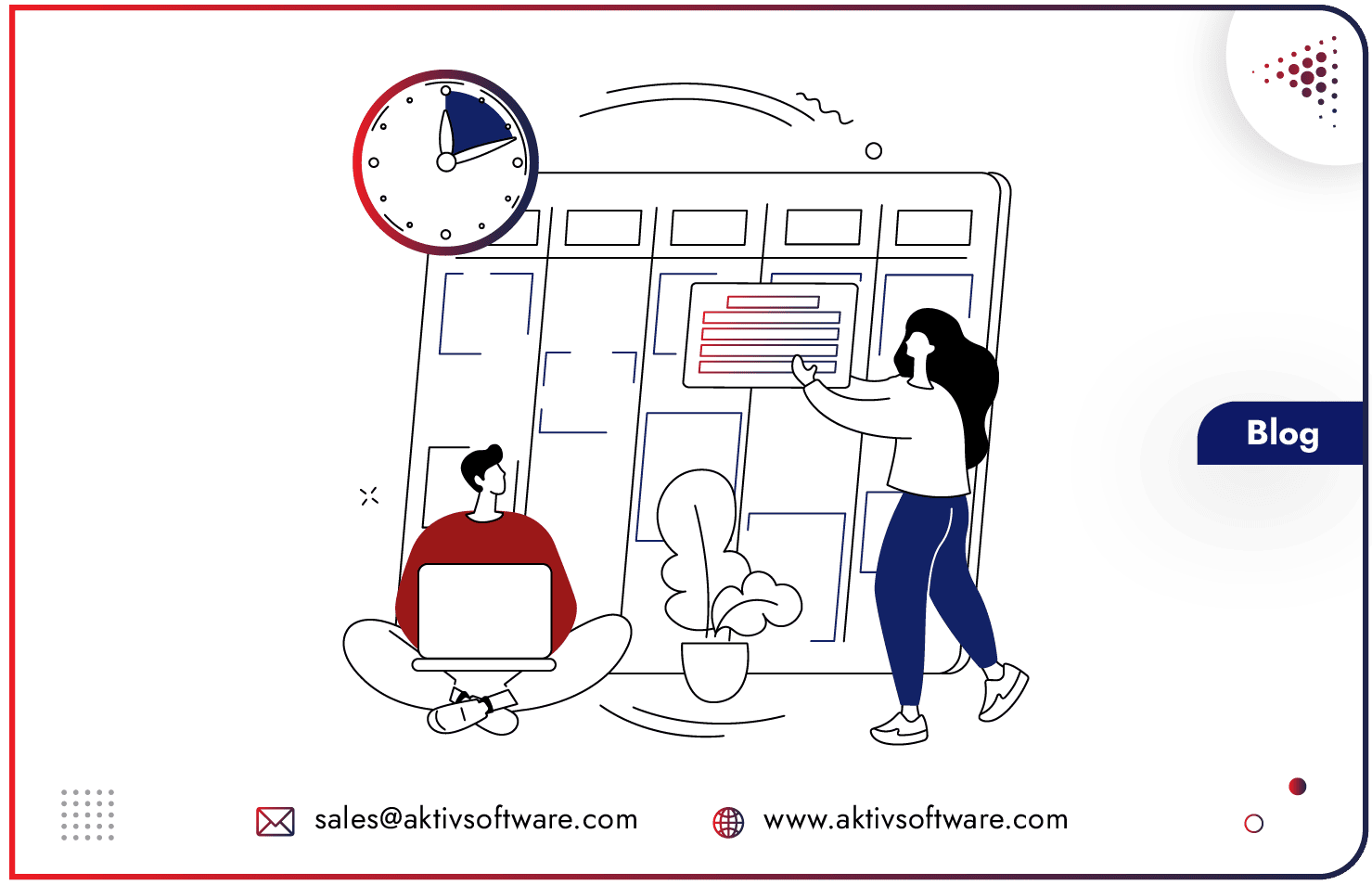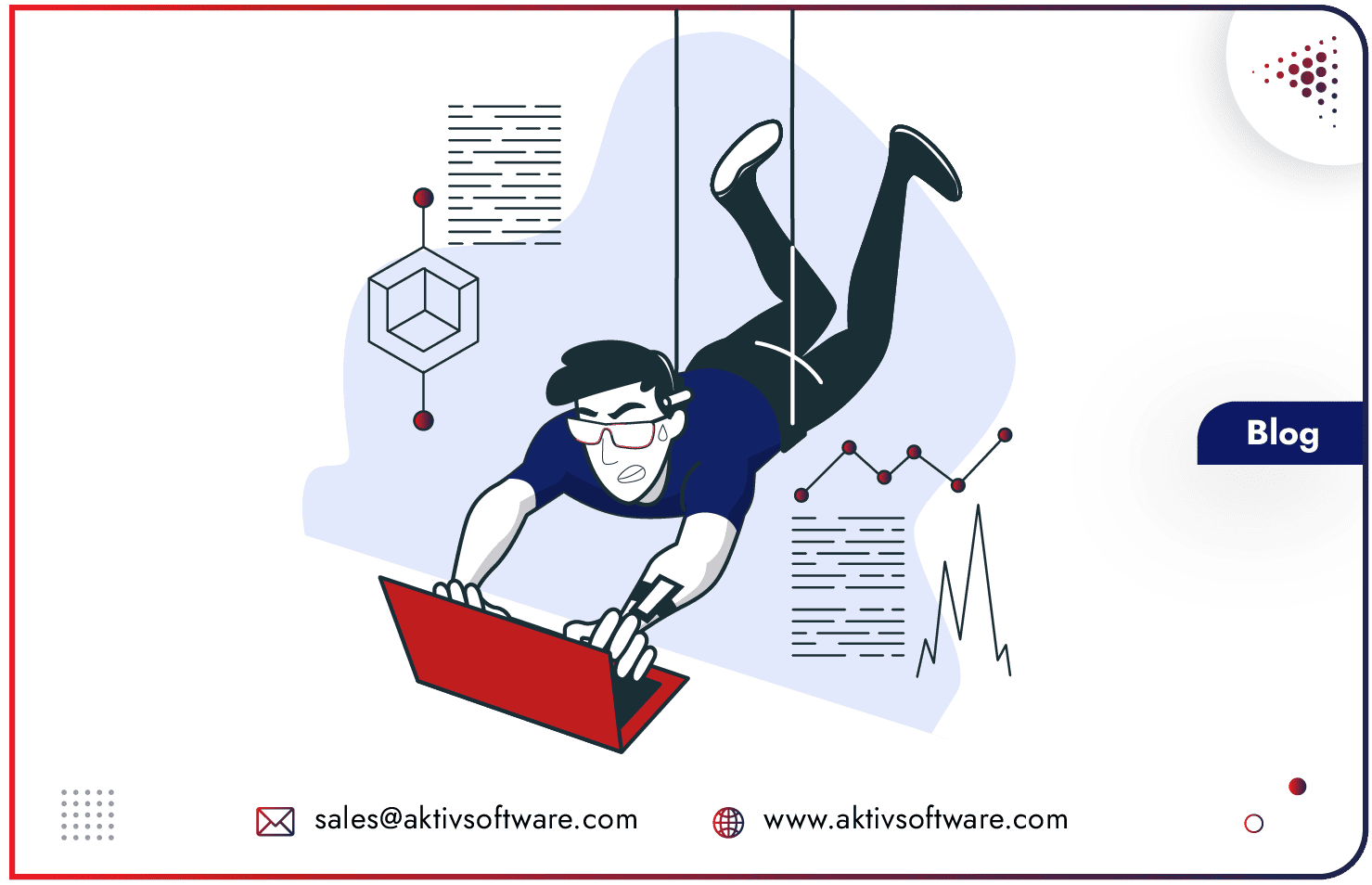Table of Contents
The purpose of exploring Odoo Vs NetSuite characteristics and differences to help users determine which ERP system will suit better for their business requirements.
The most important thing in choosing from two potential ERP software solutions is to compare the company’s specifications to the functionalities of each ERP solution.
So, let’s begin with the core characteristics of both software solutions, which will be further followed by stating the differences and advantages of choosing a particular ERP system.
Core Characteristics of Odoo Software Solution
Unlike traditional ERP solutions, Odoo ERP is an open-source cloud-based business management software.
Its main focus relies on three main functions, i.e., Business Management, CRM, and ERP. Now, all these main functions consist of submodules catering to specific business processes; to name a few, Odoo has a diversified portfolio of apps, including Sales, Operations, Productivity, Website, and various Project management tools.
Odoo ERP has more than 8 million users worldwide, which clearly indicates its suitability and customizability for a wide variety of businesses.
Download the free White Paper to learn more about Odoo.
Core characteristics of NetSuite Software Solution
NetSuite is a cloud-based integrated ERP solution suitable for SMEs and larger enterprises.
NetSuite runs on the Oracle technology stack. In fact, it was acquired by Oracle in 2016 and is now a separate global business unit (GBU) within the Oracle business.
Talking about its framework, NetSuite has divided its structure into different product categories:
- NetSuite ERP for inventory, supply chain, and financials
- NetSuite CRM for sales and marketing
- NetSuite Accounting for tax, cash, and payment management
- NetSuite Commerce for both web and on-site sales
- NetSuite PSA (professional services automation) for project management
- Global Business Management for multinational organizations
- Human Capital Management for HR (human resources management)
As per the latest count, over 40,000 organizations use NetSuite, across 160 countries. It serves organizations from all business sectors, but its strength lies in service-centric industries.
Comparison of Odoo Vs NetSuite
Requirement | Odoo | NetSuite |
| Scalability | Great scalability due to its Modular structure; it has an app for every business function. | Scales-up with the usage amount. |
| Cloud-based user interface | Yes | Yes |
| Cost/user (how the cost is determined?) | It depends on the version: Community is license-free, and Enterprise is priced according to the number of users and additional customization requirements. | SaaS Service pricing is based on Functionality (modules to be used) and the number of named users. |
| Adaptability | Enterprise is native-mobile, Community needs separate apps for mobile users. | It can be integrated through standard API interfaces |
| Process-driven platform | Yes, the whole chain from sales to invoice is covered, and all the process steps are aligned. All the available modules are tightly integrated to offer a seamless experience. | Yes, based on roles and workflows |
| Inventory management | Yes | Yes |
Supplier management | Yes | Yes |
Production planning & control | Yes | Yes |
Reporting and tracking | Yes | Yes |
Quality Management | Yes | No |
Assets management | Yes | Yes |
| Inventory management | Yes | Yes |
Support Desk | Yes, Enterprise is strongly recommended. | No |
| Product Lifecycle Management | Yes | Yes |
Vendor system support
| Yes | Yes, services are priced separately. |
HR management | Yes | Partially supported |
| Procurement planning and management | Yes | Yes |
Retailer/logistics partners portal | Yes | Recommended to use O365/SharePoint or Teams sharing to externals |
Industry suitability | Yes, it could be tailored according to industry-specific requirements | Strongest in service-centric industries. |
Odoo Vs NetSuite: Pros and Cons
PROS
| Odoo | NetSuite |
| Easily Customizable by developers and end users | Possibility to connect and integrate with other platforms | |
| Flexibility – modifiable to suit industry needs | Information is displayed and connected in a logical manner | |
| Built to scale with company needs | Built to scale with company growth | |
| Easy to use and accessible- all departments can see/share information | Strong search mechanism and decent user interface | |
| Users can eventually maintain the system by themselves with basic training and practice. | Good admin-controlling functions | |
| Custom reporting and analytics | Deep and strong reporting feature, custom reporting | |
| Free community version – Easy to start using the online service | Developers can develop APIs | |
| Accounting rules specific to each country | Accounting rules specific to each country | |
| Quick customer support response rate | ||
| Covers MRP, multi-layer BOM and e-signature (which most ERPs do not) |
CONS
| Odoo | NetSuite |
| Maintaining the system requires strong in-house IT skills or an Odoo partner. | Customization can also be a weakness. | |
| Bug fixing may take a long time to solve problems as everything in the system is integrated and has great influence. | Not good in: – project management – timesheets – expenses reporting – HR | |
| Information within the system is not well-organized | Lacking: – forecasting, modelling and prediction – dashboard capabilities | |
| Not the best option if you are looking forward to industry-specific. | Not the best option for a small company | |
| Resource intensive | Expensive software |
The Final Call: Odoo Vs NetSuite
Odoo’s advantage is that it is an all-in-one business software solution, including CRM, website/eCommerce, billing, accounting, manufacturing, warehouse and project management, and inventory.
It is also user-friendly, customizable, cost-effective, license-free, and has a big partner network. The user can start with basic implementation and add applications along the way. Odoo’s scalability supports the growth of businesses.
On the other hand, NetSuite is focused on delivering industry-specific solutions, for sectors including software, services, media, not-for-profit, manufacturing, distribution, and retail. Its strategy includes providing deep industry processes for micro-verticals within these sectors.
The main difference between Odoo vs NetSuite is that the other is an open-source software developed by a community of developers/users, whereas NetSuite is closed and developed by an IT company.
The open-source model enables individual developers to build, develop and modify the apps. It provides usability that scales across all apps. In a closed model, the developing company does the modifications and model revisions.
To make a better decision, it is always recommended to take a demo and consider various aspects like business alignment, the total cost of ownership, and the future scope of the software.

